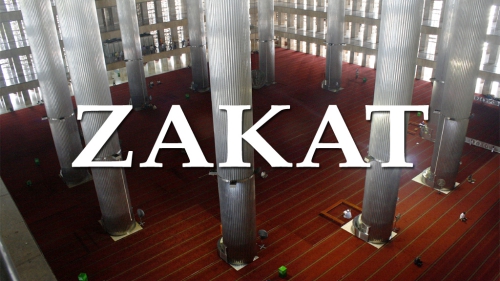Date harvest out of sync with Ramadan

In June, the calls to Dennis Jensen's Riverside County date farm began to pick up. By July, he said, the calls took on a more urgent nature: "Send me some dates; save me!"
Wholesalers and grocers were rushing to put their orders in for Ramadan, the Muslim holy month that begins Saturday. During Ramadan, Muslims fast from sunrise to sunset, followed by evening meals that commence with at least one date, a practice believed followed by the prophet Muhammad.
Preferences for the fleshy fruit run from the drier deglet noor to the sweet Medina to the hard, yellow barhi. But the most sought-after dates -- especially among Middle Easterners -- are the soft, plump medjool.
Nearly all medjools in the United States come from the Coachella or Imperial valleys in Southern California. Growers here also sell dates to Europe, Malaysia, Indonesia, Australia and even some Middle East countries, where the local medjools are eclipsed by California's.
But this year, the calendar has thrown a wrinkle into the date business. It will be the first time in a decade that Ramadan starts before the harvest season in September. The holy month follows the lunar calendar and moves forward each year about 10 days.
This means that most dates will come from last year's crop, stored in freezers. Some fear a date shortage, or at least a scarcity of the most popular varieties.
"All the date-growers have known that Ramadan runs on a lunar calendar, so we've been watching this for several years," Jensen said. "Mother Nature has other games and doesn't care when Ramadan is."
Last year, the Coachella Valley produced 20,687 tons of dates with a market value of $32.1 million, according to the annual crop report. Jensen's farm produced about 480,000 pounds of dates, with roughly 70% going to fill orders for the Muslim observance.
By now, most of Jensen's 2008 crop has been sold, but the calls keep coming. For the last several weeks, all that have remained are the jumbo medjools, the most expensive grade of the most expensive date. But as Ramadan nears, even this costly variety may become unavailable.
On a hot and humid July morning, Jensen turned his white pickup truck off Highway 86 and onto the sandy roads that run through his SeaView orchard and into the groves.
"Buenos dias," said Jensen, as he walked toward the workers and their foreman, stepping carefully over fallen fronds to avoid large palm needles and the occasional snake.
Here, on his 150 acres of date groves, Jensen is an observer. He watched the workers but didn't say anything -- in part because he doesn't speak Spanish but also because he didn't want to disrupt the chain of command.
Under shade from the palm fronds, workers in harnesses pulled white polyester mesh bags over each date bunch and tied them off at the top and bottom to protect the fruit until it is ready for harvest.
When that happens, most of the dates will be sorted, graded and packaged and sent directly to commercial freezers for next year's Ramadan.
Though the date demand will be out of season for years to come, it turns out it is the ideal fruit to store in freezers for a year or more. Any changes to the fruit are more noticeable to the eye than the palate, including sugaring on the surface and skin breakage, Jensen said.
 |
| Medjool dates
A worker clears sharp fronds around medjool dates to help others reach the dates without injury. (Allen J. Schaben / Los Angeles Times) |
But the thought of year-old fruit remains unappealing and callers to SeaView insist on fresh produce. Some, unfamiliar with the ripening process, ask if the dates can be picked a few weeks early.
"The funny part is when they argue with you, 'Why aren't they ready?' " said Roya Jensen, Dennis' wife, who oversees sales. "Because every year they're ready in September."
Growers including the Jensens have been dealing with the supply-and-demand crunch the last few years, with harvested dates rushed from the groves straight to markets. This year, growers have had to rely on last year's crop going into the season.
In January, SeaView sent its annual Ramadan shipment to Malaysia as well as to France. In years past, the company has sent dates to Saudi Arabia and United Arab Emirates.
"The medjool grown here are larger than the ones over there," Roya Jensen said.
Dave Nelson, a farmer with the Bard Valley Medjool Date Growers Assn., said it is a combination of soil and environment, as well as care, that makes the California medjools able to compete with dates grown in Jordan, South Africa and Saudi Arabia.
"We just have all the elements that it seems to require to grow good medjool dates," he said.
The group, is made up of farmers in the Imperial Valley and Yuma, Ariz., ships about half a million pounds of dates for Ramadan, domestically and internationally. In June, thousands of pounds were sent by ship to Muslim customers in Malaysia and Indonesia.
The growers' dates can also be found closer to home.
In Anaheim, along a stretch of Brookhurst Avenue lined with Middle Eastern grocers, restaurants and shops, Abdul Mohammed recently stopped by Sinbad Ranch Market to order several boxes of the fruit.
Each year the Palm Springs resident orders dates for family and friends. Breaking his fast on medjool dates is a custom he has followed since he was a teenager in Egypt.
"During Ramadan, dates is a tradition, like in Christmastime Mexican people eat hot tamales," said Mohammed. "Medjool is the best, like rib-eye steak or T-bone."
At Star Market in Westwood, most of Mostafa Pourvasei's Ramadan customers come in for the medjools, which he gets from the Bard Valley group. For snacks or with tea, the smaller dates might suffice, he said. But when his customers have company, they prefer medjools.
On a recent summer day at SeaView, a worker emptied boxes of dates onto a conveyor belt as a dozen women in gloves and hairnets tossed the fruit into boxes of various medjool grades. The packing was being done for a businessman who had the foresight to buy 50,000 pounds of dates last fall, fearing a possible shortage.
Last fall, most of SeaView's choice grade medjools, about 100,000 pounds, were bought by Fresh Express Produce Inc., a Los Angeles wholesale produce firm owned by Zakaria Trad. He secured 300,000 more pounds from other growers.
"We knew there is a high demand for the medjool," said Trad, who has been selling dates for seven years -- specializing in dates from Medina in Saudi Arabia.
At Trad's office and storage units off Washington Boulevard just south of downtown Los Angeles, two freezer units sit side by side stacked with a plethora of fruits and vegetables that appeal to his clients, Middle Eastern grocers across the country.
Three weeks before Ramadan was to begin, Trad began his annual tradition of visiting groceries across the country to sell what dates he had left.
During a stop in Chicago last year, Trad recalled, he walked into a grocery store a few days after Ramadan had started to find that it had no dates. The owner was relieved to see him.
"These people want to be saved," he said. "They don't want to be in Ramadan without any dates."
Raja Abdulrahim write for Los Angels Times and can be reached at [email protected]
Source: The Los Angeles Times
Related Suggestions
Please endeavor always to correct this common mistake.
Fasting is from before DAWN to just after SUNSET.

















